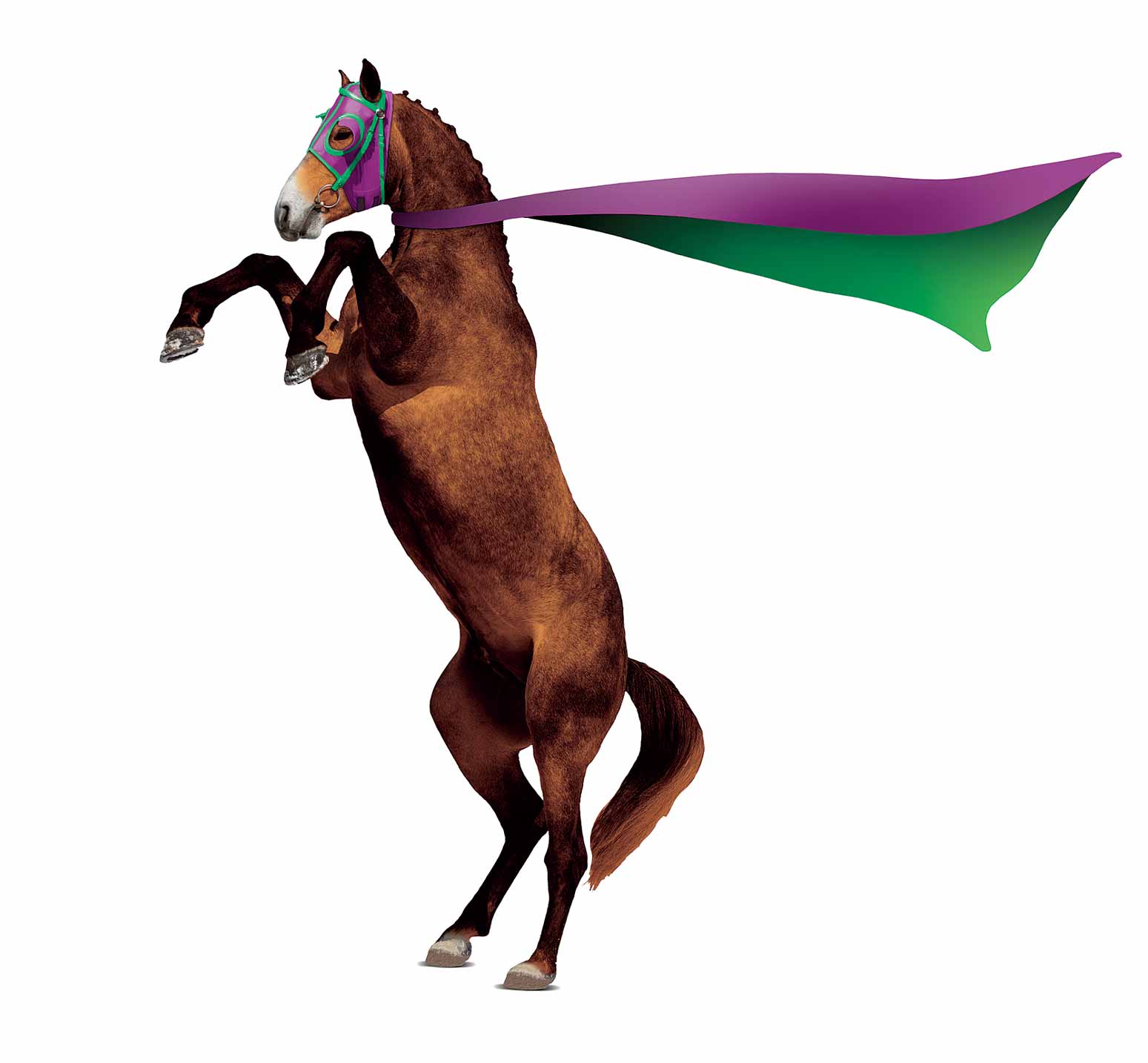
I was devastated when California Chrome lost the Triple Crown, which is surprising since I would not recognize California Chrome if I were riding him. Or her. Yet I stood at a bar, cheering for him or her, hoping the one with the purple banner thing with a number 2 on it would get to the front, or actually that the little 2 on the side of the screen would move to the top, since I couldn’t follow the actual horses. Then I felt the collective disappointment of a hundred people who were relatively sure they hadn’t witnessed history before looking the results up on their smartphones to make sure. I think the reason people drink so much at the track is that you can’t see anything anyway.
There hasn’t been a Triple Crown winner since three horses did it in the 1970s. Triple Crown winners were one of the few things we made better in the ’70s, along with guitar solos, pubic hair, Robert De Niro movies and corporate profits that didn’t all go to 50 people. Hoping to finally see a winner, more than 20 million Americans watched the Belmont Stakes–which is more than the audience for Game 1 of the NBA Finals and Game 1 of the Stanley Cup combined. Or, to put it more clearly, that’s more people than watched Game 1 of the NBA Finals plus a couple of people visiting from Canada that week. The last time this many of us watched something we didn’t understand for 2½ minutes, Paris Hilton became famous.
Like everyone else, I wasn’t watching the Belmont Stakes simply because I longed for a communal experience where we witnessed, for the first time in a generation, a horse that was so fast that it was faster than other fast horses on three different days in three different states, one of which I can name. It wasn’t just that I wanted to be connected to the past through a sport so steeped in history that people still wear hats to watch it. And it wasn’t that I was buying into another overhyped letdown like the Super Bowl, the Oscars or the Time Warner spin-off of Time Inc.
I watched because I wanted to know that greatness still exists. The Übermensch was Nietzsche’s most popular philosophical concept not because he convinced people they could achieve greatness like some kind of far less attractive Tony Robbins but because, like the religions Nietzsche thought were dead, it let us hope for a savior. Because if we don’t live in a world with supermen or superhorses, then we live in a world of randomness. A world in which a bunch of slightly above-average people take guesses about interest rates, health care and war, which makes you really worry about the caliber of people in Denver who decide how much marijuana goes in a Reefy’s Peanut Cup.
We hunger so much for this reassuring greatness that we’ll settle for a fast horse even though almost none of us has any basis for comparison to know how fast an average horse can run. I’m guessing about 30 m.p.h., but I could be off by at least 30 m.p.h.
Shortly after encountering greatness, of course, we root for the great to fail because they seem so arrogant by being better than us. Most people root against LeBron James, the New York Yankees and anyone who has lost weight. This is why, every couple of millennia, we switch gods.
I, however, am going to cling to my desire for something to stay vastly superior to me, as long as that thing stays away from my wife. I want the Heat to repeat as NBA champs not because I like Miami, which is basically a sweaty, toned middle finger to anyone who worked hard to go to a good college, but because I want to know that even in a world of salary caps and perfect training regimens, some players are still far better. I want Bill Gates to always be the richest person in the world, no one to ever beat Watson on Jeopardy! and Dr. Dre’s headphones to always be $3 billion better than everyone else’s headphones.
So I will watch the Kentucky Derby next year, and then the Preakness, hoping the same horse wins both so I can hope for a Triple Crown winner again. Because even though it’s been 36 years since we’ve had one, and horses are coddled by racing less often, and injuries are more common because they run faster, and a thousand other excuses that horses make–I have no doubt the Überhorse will arrive one day. And he, or she, will have a name that doesn’t sound at all like something you’d name a horse, like Buttercup or Midnight or That One. When that day comes, for those 2½ minutes, I will feel safe. And like I finally didn’t lose $100.
More Must-Reads from TIME
- Cybersecurity Experts Are Sounding the Alarm on DOGE
- Meet the 2025 Women of the Year
- The Harsh Truth About Disability Inclusion
- Why Do More Young Adults Have Cancer?
- Colman Domingo Leads With Radical Love
- How to Get Better at Doing Things Alone
- Michelle Zauner Stares Down the Darkness
Contact us at letters@time.com